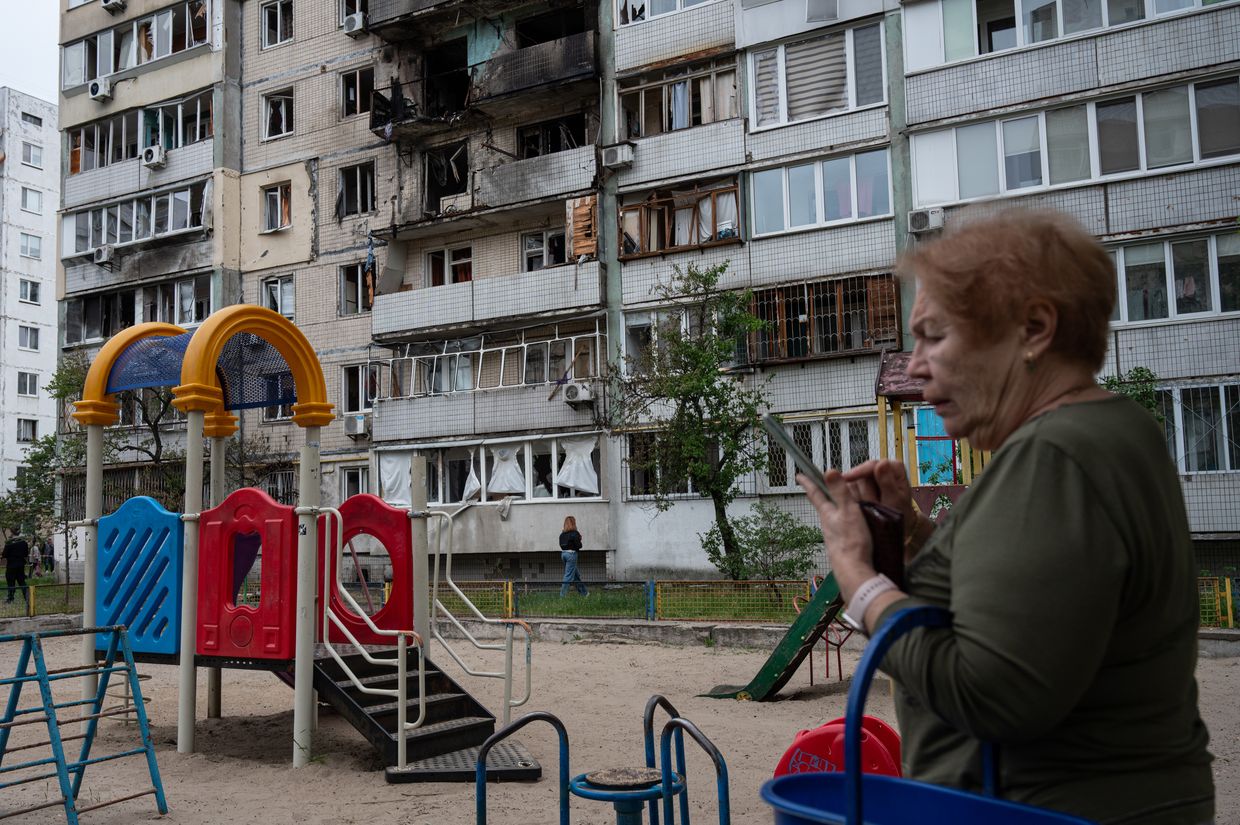Ukraine's enduring cyber defense: Assessing resilience and impact of shifting international support

A recruit of the 1st Separate Mechanized Battalion “Da Vinci Wolves” during a training at a military range in an undisclosed location, Ukraine on March 12, 2024. (Valentyna Polishchuk/Global Images Ukraine via Getty Images)

Christopher Burgess
cybersecurity and intelligence expert
From my vantage point, having recently attended the Kyiv International Cyber Resilience Forum (KICRF) and witnessing firsthand the unwavering determination in the face of relentless digital aggression, the situation unfolding in Ukraine's cyber domain demands our unvarnished attention.
The situation in Ukraine's cyber domain is not merely a theoretical exercise in network security; it directly impacts national sovereignty and societal resilience.
What I observed in Kyiv was a nation locked in a persistent cyber struggle, primarily against the Kremlin's digital legions — The Federal Security Service (FSB), Main Intelligence Directorate (GRU), Foreign Intelligence Service (SVR) and the Russian criminal actors — now further complicated by a significant shift in the international support landscape. The U.S. government appears to be withdrawing from the cybersecurity battlefield as evidenced by its wholesale reduction in personnel within key government entities, including the Critical Infrastructure Security Agency, and directives from administration leadership not to have national resources focus on Russian cyber activities.
In addition to this, the unexpected closure of the USAID mission in Ukraine, leading to the reduction of support to Ukraine's ongoing cybersecurity efforts, casts a long shadow over Kyiv's digital defenses. This was further highlighted by the palpable concerns expressed during the KICRF and the embarrassing and inexplicable absence of U.S. government participation.
The Russian attacks on Ukraine are multifaceted, targeting critical infrastructure — power grids, telecom networks, the financial system — to inflict maximum disruption, all designed to erode public confidence.
One cannot forget that intelligence gathering remains a constant, insidious undertow. Add to that the weaponization of information and the relentless campaigns to pollute the information space, erode trust, and undermine Ukraine's narrative globally.
Then we have the repeated deployment of wiper malware — digital scorched earth tactics — underscoring the destructive intent. And while ransomware may have a profit motive, its impact on essential services amplifies the overall vulnerability.
Ukraine possesses a cadre of highly skilled cyber professionals, both within government agencies and the private sector, individuals who are actively engaged in the digital war.
However, amid this digital maelstrom, Ukraine demonstrates remarkable resilience and adaptability that demands significant attention and admiration. This is not a nation caught entirely off guard. Years of Russian aggression in the Donbas, the annexation of Crimea, and the 2015 attack on Ukraine's power grid all served as a training ground, forcing Kyiv to harden its digital defenses.
Crucially, the steady hand of international assistance — governments pooling resources through mechanisms like the Tallinn Accord, the strategic guidance of entities like the EU and NATO, and the often-unsung contributions of private sector cyber defenders — has provided a vital lifeline of expertise, technology, and funding.
And let me be clear, Ukraine possesses a cadre of highly skilled cyber professionals, both within government agencies and the private sector, individuals who are actively engaged in the digital war. Their agility, their ability to adapt to evolving threats in real-time, is a testament to their resolve. As we have seen, this adaptability and teamwork are foundational to their cyber resilience.


However, the cessation of USAID's programs, which included significant initiatives in cybersecurity for critical infrastructure and digital transformation — areas where sustained support is paramount — injects a new and unwelcome element of uncertainty. The loss of this funding stream will undoubtedly create gaps in Ukraine's ability to modernize its defenses, train its personnel, and implement crucial security measures. The growing dependence on other international partners intensifies, placing greater pressure on those who remain dedicated to upholding Ukraine's digital sovereignty.
This is where the global cyber ecosystem — both commercial and governmental, now operating with one less major player — faces a starker choice: stand by and watch the digital defenses fray or step into the breach with even greater resolve.
For Ukrainian tech companies, this is not just a crisis; it is an even more urgent imperative to innovate under pressure. The demand for tailored cybersecurity solutions — threat intelligence platforms with local context, rapid incident response capabilities, and secure communication channels designed for a hostile environment — is now amplified.
Investing in the next generation of cyber defenders through robust training and education programs is paramount. Strategic alliances with trusted international partners are no longer a luxury; they are a necessity for accelerated technology and knowledge transfer.
For international companies, the call to action is now imbued with a greater sense of urgency.
Providing Ukraine with access to the sharpest cyber tools — AI-driven threat detection, advanced endpoint protection, resilient cloud infrastructure — isn't just good PR; it is a strategic necessity to compensate for the receding U.S. presence.
Investing in Ukraine's tech sector, establishing a local footprint, or forging genuine partnerships contributes to long-term stability and fills a growing void. More is needed to offset the USAID withdrawal.
The timely sharing of actionable threat intelligence is a cornerstone of the collective digital defense, now even more critical with potentially reduced intelligence sharing through formal U.S. channels. Supporting and contributing to cybersecurity education initiatives helps build a sustainable talent pipeline, which is crucial in light of potential limitations in U.S.-funded programs. Engaging in meaningful public-private partnerships and leveraging the unique strengths of all stakeholders are the only ways to build truly resilient defenses in this evolving landscape.
Russia's cyber activity knows no geographic boundary. We must reject the notion that Russia's illegal war targets only Ukraine; Russia is at war with everyone.
This is not about charity; it is about safeguarding the integrity of the global digital commons in the face of a persistent and emboldened adversary whose digital reach extends far beyond the physical borders of Ukraine. The imperative — and the heightened responsibility – to act decisively is now upon us. The unexpected withdrawal of a major player, the United States, only amplifies the urgency for others to step forward and fill the digital breach, recognizing that the digital front line in Ukraine is a frontline for us all.
Editor’s Note: The opinions expressed in the op-ed section are those of the authors and do not necessarily reflect the views of the Kyiv Independent.











